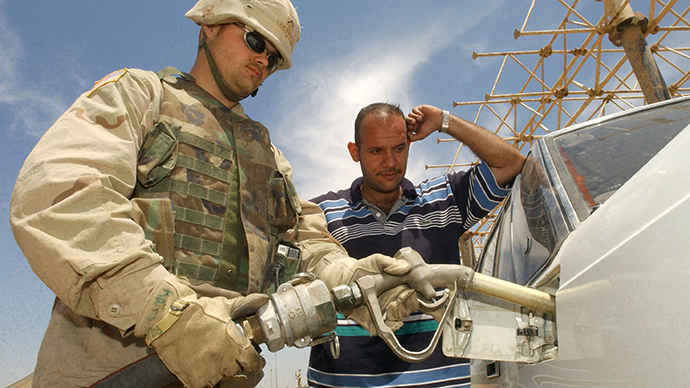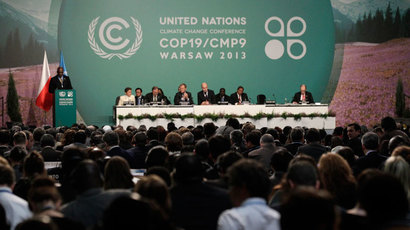Pentagon: Climate change enables terrorism

The US Defense Department stressed threats to global stability and American hegemony posed by climate change in its latest Quadrennial Defense Review, declaring that an erratic climate will likely cause increased “terrorist activity,” among other impacts.
Like the 2006 and 2010 versions, the 2014 Quadrennial Defense Review (QDR) – a report released every four years on US military strategy and the challenges to its global operations – highlights threats, some more predictable than others, that global climate change will present to human civilization.
"The impacts of climate change may increase the frequency, scale, and complexity of future missions, including defense support to civil authorities, while at the same time undermining the capacity of our domestic installations to support training activities," states the 64-page report, published Tuesday.
"Climate change poses another significant challenge for the United States and the world at large. As greenhouse gas emissions increase, sea levels are rising, average global temperatures are increasing, and severe weather patterns are accelerating."
A warming planet will likely “exacerbate water scarcity and lead to sharp increases in food costs,” the report details, leading to devastated infrastructure and living conditions, especially in poorer regions of the world.
In addition, this fierce “resource competition” will only push the likelihood of additional terror threats, the QDR states.
"The pressures caused by climate change will influence resource competition while placing additional burdens on economies, societies, and governance institutions around the world,” the report continues.
"These effects are threat multipliers that will aggravate stressors abroad such as poverty, environmental degradation, political instability, and social tensions – conditions that can enable terrorist activity and other forms of violence."

When it comes to climate change, the 2014 QDR focuses mostly on these impacts, adding only a few ambiguous suggestions on what to do about the crisis – one incited by fossil fuel consumption levels like that of the US military.
"We have increased our preparedness for the consequences of environmental damage and continue to seek to mitigate these risks while taking advantage of opportunities.”
The 2014 QDR states that the Pentagon will use “creative” solutions and approaches when it comes to catastrophic climate change, but fails to expand on what that means.
"[T]he department will employ creative ways to address the impact of climate change, which will continue to affect the operating environment and the roles and missions that U.S. Armed Forces undertake," the QDR says. "The Department will remain ready to operate in a changing environment amid the challenges of climate change and environmental damage."
The QDR then adds that for the Defense Department to effectively address the effects of an unstable climate, it must maintain military dominance.
"The Department’s operational readiness hinges on unimpeded access to land, air, and sea training and test space...[and] [w]e are developing new policies, strategies, and plans, including the Department’s Arctic Strategy."
As DeSmogBlog noted Tuesday, the Defense Department’s Arctic Strategy, released in November 2013, is driven by “historic opportunities” associated with an increasingly warmed Arctic region, which will mean increased US access to more fossil fuels previously inaccessible.
Despite identifying climate change as a global menace and an antagonist to American power, the Defense Department does not address its own unrivaled fuel consumption.
According to the Pentagon’s Defense Energy Support Center, the military spent $3.8 billion in 2009 for 31.3 million barrels, or about 1.3 billion gallons, of oil that was consumed at posts, camps, and overseas bases, TomDispatch’s Nick Turse reported in 2010.
Estimates as to how much oil the US military uses per day varies between about 400,000 barrels per day in "peacetime" to around 800,000 barrels each day during the height of the Iraq war.














